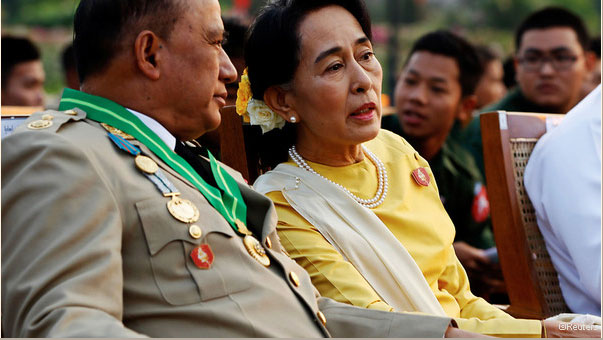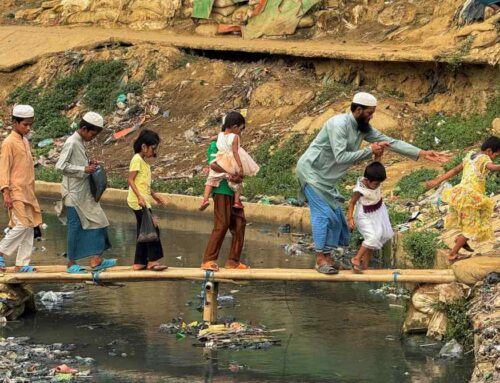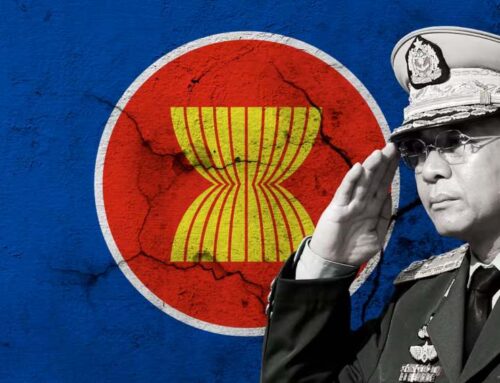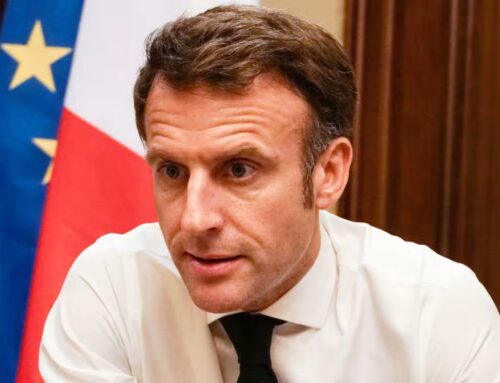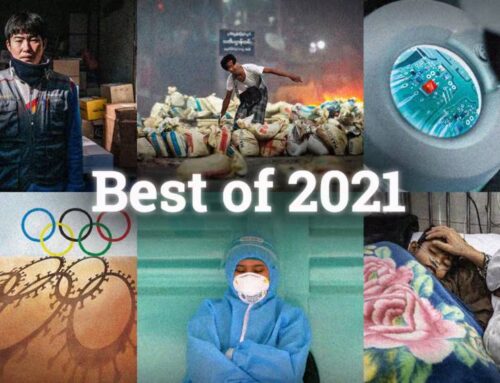Myanmar: An uneasy alliance
Aung San Suu Kyi and the ex-generals must overcome their fractious past to help the country push ahead with reforms{1st Photo Caption: Military family: Aung San Suu Kyi sits among army officers responsible for her 15-year detention}
Opinion Thein Sein
Myanmar: An uneasy alliance
Aung San Suu Kyi and the ex-generals must overcome their fractious past to help the country push ahead with reforms
Gwen Robinson and Lionel Barber
MAY 17 2013
If a single image captures the scope of Myanmar’s sweeping transition, it is the photograph of opposition leader and Nobel laureate Aung San Suu Kyi, making her first appearance at the annual Armed Forces Day parade in Naypyidaw, the capital.
Elegant in yellow silk and pearls, and with roses in her hair that March morning, the former political prisoner sits amid some of the officers responsible for her near 15-year detention, listening respectfully as armed forces chief Min Aung Hlaing tells troops that the military will maintain a leading role in politics.
Just weeks before, the woman best known for her strident campaign against military rule told the BBC radio programme Desert Island Discs that she loved Myanmar’s armed forces like you would love a family member. “I was taught that my father was the father of the army, and that all soldiers were his sons – and therefore part of my family,” she said, referring to her father, the late independence hero Aung San.
Those conciliatory words, unimaginable only two years ago, reflect the delicate line Ms Suu Kyi must walk as she makes the difficult transition from pro-democracy firebrand to political leader.
In its scope and pace, Myanmar’s rapid opening after decades of harsh, secretive military rule has been likened to the end of South Africa’s apartheid era. Parallels have been drawn between reformist leaders in both countries and, more controversially, between “the Lady”, as Ms Suu Kyi is known, and Nelson Mandela – to the chagrin of critics who accuse Ms Suu Kyi of sacrificing principles for political gain.
But as with any society emerging from repressive rule, Myanmar’s transition is about far more than the liberation and rise of a pro-democracy leader.
Even as Ms Suu Kyi hones her flinty new image of pragmatic politician, an equally improbable transformation is taking place among Myanmar’s ex-generals: from uniformed junta members into civilian reformers in suits or flowing longyi sarongs.
That at least is the surface impression when meeting President Thein Sein, a former army general, and the ex-military officers dominating his so-called “super cabinet” of trusted ministers and advisers.
On Monday President Barack Obama will welcome Thein Sein to the White House on his first official visit to Washington.
The low-key leader’s US trip comes six months after Mr Obama’s historic visit to Yangon and nearly 50 years after Lyndon Johnson welcomed Ne Win, the last Myanmar leader to visit the White House.
The White House cited Mr Obama’s “commitment to supporting and assisting those governments that make the important decision to embrace reform”, even as it mentioned the “many remaining challenges” faced by the government.
In interviews, Thein Sein and his reformist ministers speak emphatically about their desire to tackle poverty, modernise the country and advance democratic processes.
Indeed, in the two years since he came to power, hundreds of political prisoners have been released; personal freedoms have been restored; crucial labour and social reforms implemented; and media controls lifted.
Economic reforms are already beginning to pay off. Myanmar’s economy grew 6.3 per cent in 2012, from an average 5 per cent in the preceding five years, and could record 6.5 per cent growth this year, according to the Asian Development Bank.
Exchange rate reform has eliminated gaping currency distortions and a new foreign investment law has taken effect. More significantly, the military’s share of the national budget has dwindled from more than 22 per cent in 2010 to barely 12 per cent, or about 15 per cent with supplementary spending this year, while education and health budgets have nearly trebled from below 3 per cent each. Thein Sein has said his “ third wave” of reforms will focus on financial regulation and land rights.
Such rapid liberalisation comes at a high price. The battles fought by the ex-generals these days involve dealing with a combative parliament and managing the ever-growing demands of big business. They are also trying to fight entrenched corruption.
However, their toughest challenge is to counter the “dark forces” unleashed by new freedoms, such as the right of assembly and free speech. Foremost is the spread of religious and racial violence, and festering conflict with ethnic rebels in the north.
International human rights groups have accused the government and security forces of complicity in recent waves of anti-Muslim violence. They have also condemned excessive police crackdowns on protesters at mines and disputed land sites.
More damaging to the government’s quasi-civilian image were signs that Thein Sein was “unwilling or unable”, as one diplomat put it, to curb the military’s ferocious campaign against ethnic Kachin rebels. The fighting has quietened but a peace deal remains elusive.
Such issues underline a crucial test for Myanmar’s reformers: tempering, if not controlling, the military’s political reach. Under what insiders say is an “unspoken” agreement, the generals have not overtly meddled in daily government affairs – except to keep a tight grip on security matters. They are not happy with the budget cuts but are reconfiguring their defence doctrine to reflect new realities.
Co-operation also comes at a price, driven home in the Armed Forces Day message: the generals have no intention of returning to barracks, nor of surrendering their 25 per cent block in national and regional parliaments.
The US, in the diplomatic scramble to engage resource-rich Myanmar, has signalled its desire to upgrade bilateral ties. But fresh concerns about potential backsliding on human rights has raised hackles in Congress and government circles.
Unlike other western governments, which have jettisoned most Myanmar sanctions in the past year, Washington merely eased economic and business restrictions. Myanmar’s leaders say the uncertainty deters big western investors. “We need to create jobs, we need investment – we try not to let difficulties with these sanctions hamper liberalisation but they may hinder foreign investors,” Thein Sein told the Financial Times.
Despite hesitancy among western companies, other foreign investment has surged, albeit from a low base, with $6bn invested in Myanmar over two years. Business missions are flocking to the country but most follow the “four Ls: ‘Look, listen, learn and leave’,” quips a young official at UMFCCI, the leading business association.
Gradually, as the legal framework for investment falls into place, that is changing. In the past months, big corporate names such as Hilton, Accor, GE, Coca-Cola, Bosch, Standard Chartered, Visa, MasterCard and Samsung have signed deals.
For Myanmar’s leaders, the stakes are high and the timing is urgent: ahead of national elections in 2015, decisions taken now will shape the country’s future – including whether Ms Suu Kyi will realise her ambition to lead it.
Their ability to manage the transition will determine whether the country can take its place among other fast-growing countries in southeast Asia.
“Myanmar’s moment is now,” says U Soe Thane, minister in charge of economic affairs and a former commander of the navy. “We have been planning for two years, we have changed many things. But this is our year of implementation, particularly for economic reforms.”
The government’s pace of reform has gone way beyond the tightly controlled transition mapped out in 2003 by Than Shwe, the military dictator, who handpicked Thein Sein as his successor. “Things are indeed moving fast,” said U Than Lwin, a leading banker and parliamentary adviser. “But we have been waiting decades for this moment. You cannot tell us to stop or slow down now”.
Crucial to the reform dynamic is the dual metamorphosis of Ms Suu Kyi and Thein Sein. “The Lady is a democracy icon, the president is the reform icon,” says Soe Thane. “These two still have good relations, they co-operate though not on a daily basis. We must take care of both for the sake of Myanmar,” he said.
Both are intent on transforming themselves before the 2015 poll. Ms Suu Kyi is attempting to shift from inspirational leader into a politician while Thein Sein is taking the mantle of civilian reformer. The president has not ruled out running for another term but, either way, believes the ruling USDP has a 50 per cent chance of winning if he can deliver on reforms, say insiders.
Whether Ms Suu Kyi becomes president or kingmaker depends on her ability to reform the constitution that enshrines the military’s political role. As a Myanmar national with foreign children by her late husband, British academic Michael Aris, she is barred from high office.
Regardless of the government’s record, her supporters are confident that her popularity will deliver victory. However, Ms Suu Kyi’s NLD already faces the same question as South Africa’s African National
Congress: whether to co-operate with the myriad opposition groups that have sprung up amid the political opening – or go it alone and risk alienating many local and national interests.
There is little doubt the NLD could sweep a free and fair election “but the biggest challenge will come in its capacity to govern”, says Hervé Lemahieu, a Myanmar analyst with Oxford Analytica, a political risk consultancy. Other critics note that the NLD is a collection of former activists and political prisoners with little economic expertise and no government experience. The push to promote younger members has caused serious internal rifts, which will sorely test Ms Suu Kyi’s famously imperious leadership style.
Beyond that, the greatest risk for the opposition is what Mr Lemahieu calls the NLD’s “one-woman strategy”: Ms Suu Kyi’s “continued centrality to the party’s political viability”. There are no apparent heirs to the NLD leadership and certainly none with her political pedigree and pulling power. The succession question aside, the NLD’s “pragmatic policies and narrow focus on law and order could damage its standing among the wider pro-democracy opposition and ethnic minority groups”, says Mr Lemahieu.
The election is still two years away, however. Until then, the government is racing to prove to its citizens – and the international community – that it is serious about reform, and capable of delivering it.
“We must deliver, especially on critical things like infrastructure and electricity,” says Soe Thane. “We can do that, although economic development also requires a graduated approach. And we need help.”
The White House: A wait-and-see approach
Ever since the new government in Myanmar signalled its intention to open up the political system two years ago, the Obama administration has faced a delicate balancing act, writes Geoff Dyer. It wants to reward the government for its surprising embrace of reforms but it also wants to leave some restrictions in place that will give it leverage in the coming years.
This tension will come to a head on Monday when Thein Sein becomes the first president of Myanmar to visit the White House since Lyndon Johnson held an informal dinner for Ne Win in 1966.
Having watched the EU lift its sanctions and seen Japanese investors plunge back into Myanmar, US business groups worry that they are missing out on new opportunities in the country. At the same time, human rights organisations warn that if the US lifts sanctions too quickly, it will only reinforce the high level of crony capitalism in the country.
So far the administration has lifted a number of restrictions on investing in Myanmar and on importing goods from the country. At the same time, a law that prevents Americans from doing business with individuals involved in repressing the democracy movement in the 1990s has been extended for another year. The result is that US companies have to tread very carefully if they want to do business in many of the most sensitive parts of the Myanmar economy, including resources and mining, giving the administration a sort of informal veto power.
The Obama administration is working to give goods from Myanmar preferential access to the US market under a programme for poor countries known as the Generalised System of Preferences.
Last month Demetrios Marantis, acting US trade representative, said that duty-free access might be granted by the end of the year. “It is a great opportunity for both sides,” he said. Given the political imperative to give Thein Sein something to show from his trip, the White House is likely to emphasise this concession when he visits next week.
Source Link: FINANCIAL TIMES
